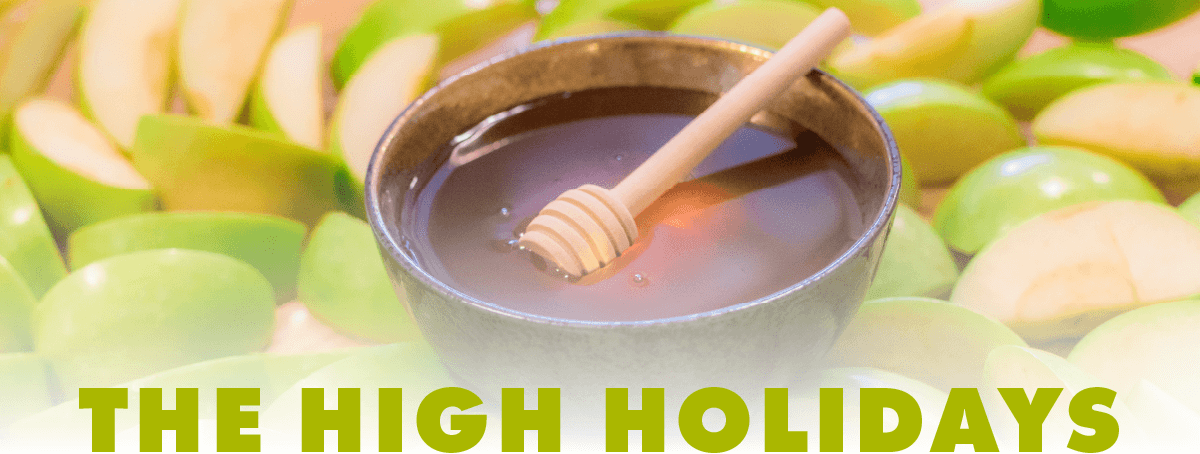Learn About the Jewish High Holidays from Rabbi Rick Brody
What are the Jewish High Holidays and how are they celebrated? Check out this handy guide from Rabbi Rick Brody, Baskin Jewish Community Chaplain!
Rosh HaShanah—the Jewish New Year, the first two days of the Hebrew month of Tishrei—falls this year on Monday evening, September 6 through nightfall on Wednesday, September 8. It begins the Ten Days of Repentance, an introspective period of personal renewal also known as the Days of Awe or the High Holidays.
This period culminates with Yom Kippur, the Day of Atonement, on the 10th of Tishrei (sundown on Wednesday, September 15 through nightfall on Thursday, September 16. The Torah gives no reason for Rosh HaShanah and only calls it a Day of Blasts, referring to the shofar (ram’s horn).
Deeper Knowledge
The elaborate sounding of the shofar (watch here) is the distinctive public ritual for the holiday, with many possible meanings. One is to mark the “birthday of the world”—more specifically, when God created humanity. In addition to its reverential perspectives (and, for some, many hours in synagogue) Rosh HaShanah carries a festive mood as well, rooted in hope and gratitude. Many Jews have the custom of sending “new year’s cards” to friends and family, offering greetings for a sweet new year. Interestingly, this custom developed from a practice of writing “amends letters,” in the spirit of the season’s focus on repentance.
The wishes for a sweet new year are also captured in foods. Families gather for festive meals and enjoy items such as apples with honey and sweetened challah (bread), a round loaf that signifies the cycle of the year.
The popular greeting is L’shanah tovah—“for a good year;” some people add um’tukah—“and sweet.” It’s perfectly appropriate for non-Jews to express holiday greetings to Jews they know. You’re welcome to try out the Hebrew above or simply say, “Happy new year.”
Inspiration
This past Jewish year was a difficult one. Artificial calendar changes hold no magical power; but the idea of “turning the page” can still inspire us:
The High Holidays can empower us to recommit our gifts and talents in facing our numerous challenges with courage and strength. We can breathe a collective sigh of relief—grateful for our health and our loved ones.
We also see some real transitions—returns to school that affect many of us; global disasters (both political and natural) that, sadly, cause much suffering; and ongoing changes in the status of Covid—with its small and large impacts on us and society. We hope for a year ahead that’s filled with the blessings of life, joy, fulfillment, healing, growth, and peace.
L’shanah tovah!

